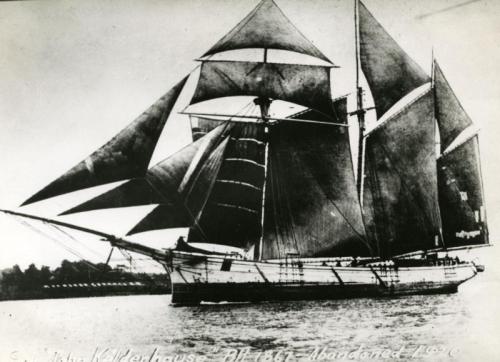The Infamous Dan Seavey, Pirate of Lake Michigan,When one typically thinks of pirates, a peg legged,
The Infamous Dan Seavey, Pirate of Lake Michigan,When one typically thinks of pirates, a peg legged, eye patched, Long John Silvers type Caribbean pirate comes to mind. After the all the most famous pirates tend to follow the stereotype, Caribbean pirates such as Blackbeard, Bartholomew Roberts, Captain Kid, and Jack Rackham. However pirates come from many different backgrounds and many different eras in history. For example, around the 13th century BC large migrating groups of ancient Semitic and Indo-European sea raiders called the “sea peoples” sacked entire cities and looted empires with bronze weapons. The Vikings were pirates too, raiding and looting as far north as Scandinavia and as far South as Egypt. In the Indian Ocean and Somalian coast today, pirates have traded in their cutlasses and flintlocks for assault rifles and RPGs, raiding large cargo ships such as the famous Maersk Alabama.Like most other bodies of water, the Great Lakes too become a hotbed of piracy. In the early 20th century a little known freshwater pirate named “Roaring” Dan Seavey earned a reputation as the greatest pirate on the Great Lakes. Born in Portland, Maine in 1865, Seavey never seemed to have much luck as all of his business ventures failed miserably. In 1898 he left his family in Milwaukee in search of fortune during the Great Klondike Gold Rush. He returned as broke and broken as ever. It was then that Seavey somehow acquired ownership of a schooner named Wanderer, originally built for the Pabst family of the Pabst Brewing Company. At first Seavey was an honest man, transporting cargo across Lake Michigan with his ship, but then Seavey began to realize that he could make much more money by turning to crime and piracy. While Lake Michigan might not seem as treasure filled as the Spanish Main, in reality there were a lot of riches to be had, as ships imported precious goods such as animal pelts and liquor from Canada, gold shipments between banks in Chicago and Michigan, and payroll shipments to the iron mines in Wisconsin and Upper Michigan.Between 1900 and 1908 Roaring Dan Seavey sailed across Lake Michigan, raiding and plundering with the law on his tail. At first Seavey would merely sneak into ports at night, stealing cargo from warehouses and docked ships. Then he adopted a more aggressive approach, raiding and boarding ships in the open waters. One of his most famous tactics was a trick called “moon cussing”, where he would alter the lights on his ships to look like guide lights, causing ships to crash on the rocks or become grounded on sandbars. He would then forcefully board the ship, steal the cargo, and resell then cargo elsewhere. Seavey also made money in other seedy trades such as smuggling bootleg liquor and believe it or not, illegal venison. Some of his greatest profits were in deer poaching and the smuggling of venison. When a company called Booth Fisheries tried to cut into the illegal venison trade, Seavey sank one of their ships with cannon, killing all on board. Seavey was not a good man by any means, typically any women who were captured were sold into illegal prostitution, and there are stories that Seavey often abducted women from ports and isolated towns for profit.In 1908 Seavey made his biggest score yet with the capture of the Nellie Johnson. He and his fellow pirates plied the crew with whiskey and liquor. When the men of the Nellie Johnson were good and drunk, he and his pirates threw them overboard and stole the ship. The plunder of the Nellie Johnson was Seavey’s last big score, on September 8th, 1908, he and his men were arrested by the US Revenue Cutter Service (the precursor to the Coast Guard), and hauled in chains to Chicago for trial. Amazingly, the prosecutors could make few of the charges stick, and when the owner of the Nellie Johnson failed to appear in court, the law had no choice but to set Seavey free.After his arrest, Dan Seavey finally did go straight, ironically become a US Marshal in order to fight piracy and smuggling on the Great Lakes. He retired in the late 1920’s, and died in 1949 at the age of 84. -- source link
Tumblr Blog : peashooter85.tumblr.com
#history#pirates#piracy#dan seavey#great lakes#crime#criminals#lake michigan#michigan


